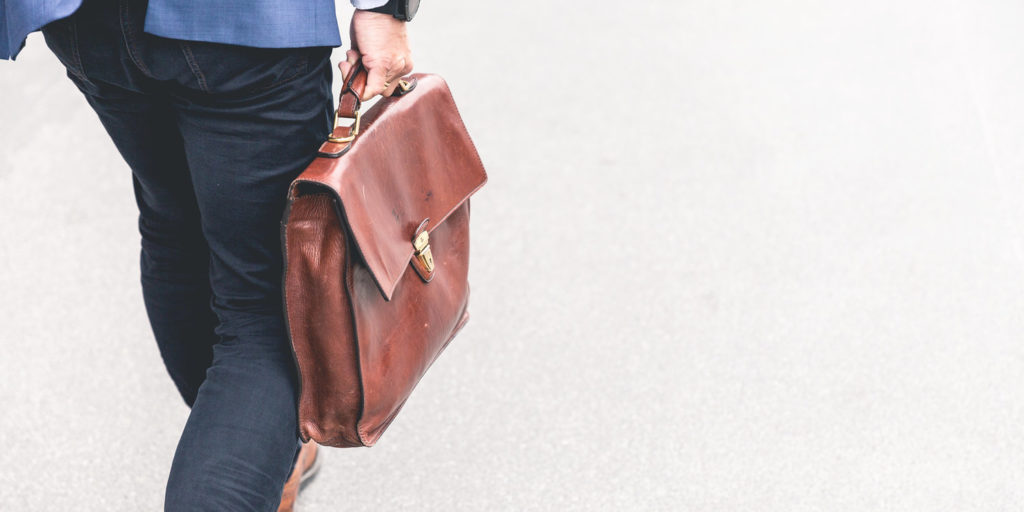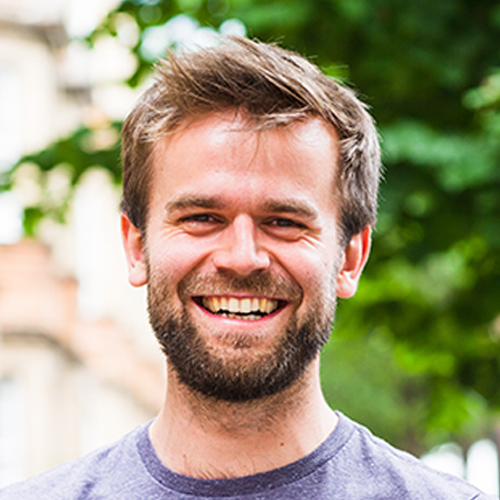Growing up I didn’t have a clue what I wanted to be. Well, that isn’t quite true. I wanted to be a professional footballer, simple.
Unfortunately, I didn’t make it. But putting my unfulfilled childhood aspirations aside, I’ve found myself asking almost the same question in reverse: how on earth have I ended up doing what I do? To be more specific, I’ve just started working as Head of Marketing for a Fintech AI company when my background is exclusively in the charity sector.
I didn’t have a grand vision or plan that led me to where I am today. Although Martin (my boss) if you’re reading this, there is a cogent and clear narrative that made me the ideal candidate. But I picture my 5, 10 or even 25-year-old self seeing where I am now and thinking, how have you ended up there?
My guess is that this is the reality for most of us who didn’t know we wanted to be doctors or lawyers from the age of five. Possibly one of my favourite articles of all time is entitled, ‘Everyone is totally just winging it, all the time’. It was a weird relief to know that those individuals and institutions you look up to are likely to be as lost as you feel. You just can’t see it.
We often feel like imposters in our own present situation. Our future is and always has been a mystery. Our past needs some generous reverse-engineering to make any sense. Yet people still love to ask the question ‘where do you see yourself in five years’ time?’
‘Not a clue’ is an unacceptable answer in an interview and barely acceptable at a social occasion. But it feels like the most truthful. Life is too random to know where my future lies.
I’ve found it goes in romance as much as in work. Take my current relationship, 12 years ago our parents both chose to go to the same holiday destination at the same time. After ten years of silence, my colleague assigned me to work at a conference she was going to, where we happened to bump into each other and have a five-minute chat. But we only started going out after last summer, when she messaged me to say she was working next to a stand I had designed for work.
I could outline the same randomness about my best mates from university or many other areas of my life. Or point out events that have dramatically shaped history: a wrong turning that started the First World War,a street vendor’s mistreatment that started the Arab Spring, or the discovery of penicillin. It’s all so incredibly, disconcertingly and chaotically random. But we believe that underneath the randomness there is purpose to it all because it’s almost an affront to say there isn’t meaning to life.
Yet, all the science and secular logic I’ve come across says we are just atoms reacting and interacting with no purpose or destiny beyond the bounds of the laws of physics. It’s a cold and uncomfortable thought but at least it’s honest.
I think it’s a bleakness we choose to ignore because we want to believe that good will ultimately conquer evil. We want our loved ones to be in a better place. We want love to be more than a set of complex chemical reactions. But our God-free belief system gives us no such basis or logical reason to hold these beliefs. So why do we allow these religious platitudes to reverberate around our enlightened society?
It’s obvious: we crave meaning and purpose. Life is utterly bleak without true meaning.
So where does that leave us? We have to make claims that fit our secular age: the meaning of life can only be individual, temporary and subjective. Put more plainly, ‘you do you’.
Discover yourself. Be true to yourself. Find your why. These self-focused overly-Instagrammed platitudes are surprisingly close to the truth in searching for secular meaning. There is complete freedom to be anything, which sounds great. But only because there is no ultimate meaning to it, suddenly it’s bleak.
I am always deeply impressed by atheists who recognise this reality in-built into their beliefs. The inability of atheism to give ultimate meaning and purpose to life is absolutely not a logical argument against it. Nevertheless, it’s an extremely hard pill to swallow.
I’m not sure how I would cope, as I still believe in God. A God who ensures that good does win, love is more than chemical reactions and ‘a better place’ is an invitation open to all. When I feel like an imposter, wondering how on earth I got to be Head of Marketing at an AI company, my faith allows me to relax and find peace in the fact God is in charge of what seems like an incredibly random narrative of history. And find real purpose in the suffering, joy and mundane reality of life.
We all believe there is meaning to our lives, despite the randomness. ‘You do you’ simply does not lead to a fruitful and fulfilling worldview. Atheist and secular platitudes cannot meet our need for real purpose. But all I can do is me, and explain how my faith brings peace to the chaos. I’ll leave you to do you and perhaps to wonder why we have those deep cravings in the first place.



